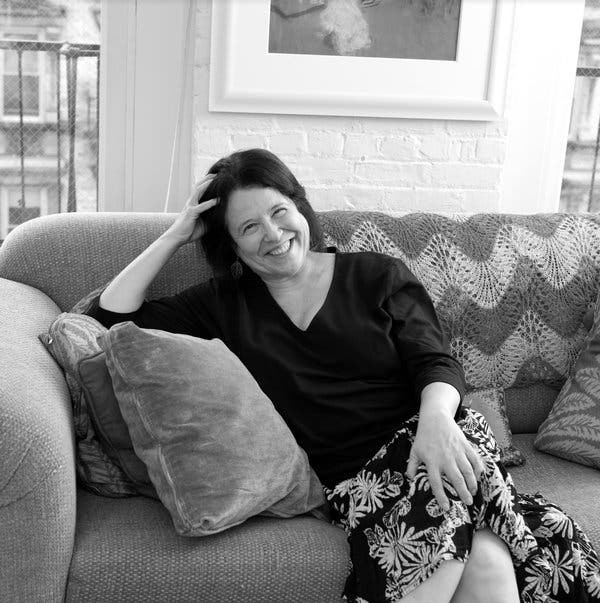
The Dyer’s Hand
Ann Snitow’s retirement from The New School
—
Ann Snitow gave the following talk on the occasion of her retirement from The New School on April 9, 2019. In their introduction, the two current directors of Gender Studies, Margot Bouman and Lisa Rubin, pointed out that Snitow, now emeritus, had the distinction of having founded the Gender Studies program at the University twice.
—
Thence comes it that my name receives a brand And almost thence my nature is subdued To what it works in, like the dyer’s hand
Shakespeare, Sonnet 111
I ask myself: What has dyed my hand? A passion for feminism.
Inevitably, such passion distorts. Inevitably, there’s both strength and limitation in such a love.
What is feminism after all? What are its proper alliances? What have been its worst moments of stupidity?
The feminism I love and that has sustained a lifetime of engagement is the feminism of uncertainty. Feminism keeps changing — and should.
Uncertainty: What an odd banner to fly under — but there it is. I am never satisfied, and since I constantly complain about feminism, I certainly landed in the right place — The New School, where we are famous for critique.
Founding Gender Studies here — twice — has been uphill because of this very skepticism among my colleagues and sometimes even inside myself, and, of course, sometimes because of a less justifiable resistance, an inertia that is a liberal form of sexism.
During these same years I have taught in The New School’s summer school in Poland, “Democracy and Diversity,” directed by our heroically persistent Elzbieta Matynia, and have worked as a feminist activist across most of East Central Europe.
There, resistance to feminism has a different history:
At first plenty of indifference to what was seen as an inadequate, old Stalinist project, female emancipation. Then an invidious taboo against a return to communism. These were the first motors of critique in East Central Europe when I started. In 1992, when Irena Grudzinksa Gross introduced me to Adam Michnik as a feminist activist, this famous Polish dissident laughed. So ridiculous and unimportant was feminism. That was then.
But, as I’m sure you all know, resistance to feminism in the region has changed.
Forget uncertainty, satire, teasing humiliation. Now feminism is evil, the death of everything dear, enemy of the good. A deadly certainly has rolled in.
Governments have taken draconian action against evil feminism: Gender is no longer a legitimate subject of inquiry at school in Hungary. Since the patriarchal order of things is natural, it is not to be studied — or questioned. In Poland, motherhood is lavishly funded and battered women’s shelters are closed. The Law and Justice Party has just announced its hope that Poland will soon become “a region free from LGBT.”
So, feminism is dangerous.
Well, I’ve always thought so.
Feminism seeks to imagine different possible futures and new freedoms feel dangerous.
What are feminism’s sins? What lurking harm lies in feminism? Feminists are internationalists — working across borders — disloyal.
Feminists are a force against xenophobia and Othering in general; we work with refugees, against racism, supporting the dispossessed. We are what Adrienne Rich called “disloyal to civilization.” Dangerous, dangerous.
Feminists defend the bodies and the free will of women and queer people, undermining patriarchal authority in the family and the church. Unruly, disloyal, disobedient.
With my dyer’s hand, my passion for feminism, I’ve always hoped feminist desire might fuel resistance and be dangerous, a real disruption.
I don’t demand that my students have a passion for feminism, that they share my dyer’s hand. What they will be passionate about is their own business and, humbly, I don’t know what it will be.
I do teach them critique. The need to define and refine the tasks of feminism is ongoing.
But to this teaching of critique I choose to add something else — something that often gets displaced. Feminism, allied with many other liberation movements, has the potential to be dangerous. I want to let my students know how powerful feminist struggle can be.
The feminism I care for marks us as in resistance to Prime Minister Viktor Orban in Hungary and to the Law and Justice Party in Poland and to our current government right here. Potentially, we are a key part of the great pushback. Don’t let anyone dismiss us as only a matter of individualistic culture, a misleading sideline disparaged as “mere identity politics.”
Dear friends and colleagues, thank you for your superb company in this undertaking: To help our students know how dangerous they can be. We are marked by our feminism, our resistance. What could be better? Avanti.